Great Resignation, Empty Offices Are The New Normal
The COVID pandemic has changed the world in more ways than one. Just ask those who no longer desire to return to work inside an office building or have become full-fledged members of the Great Resignation.
Current Events :
Pre-pandemic, Americans were rewarding themselves with the homes and cars they always dreamed of owning — while working 12-16 hour shifts just to pay for it all. Additionally, employees were regularly and easily “bought” by office perks designed as an incentive to make them eager to come into the office. For example, Taco Tuesdays, free T-shirt giveaways, and casual Fridays quickly became a “thing” employers teased weekly. At Google, free child care, a full gym, and free lunches freshly prepared by gourmet chefs all became extremely popular.
And then, COVID happened.
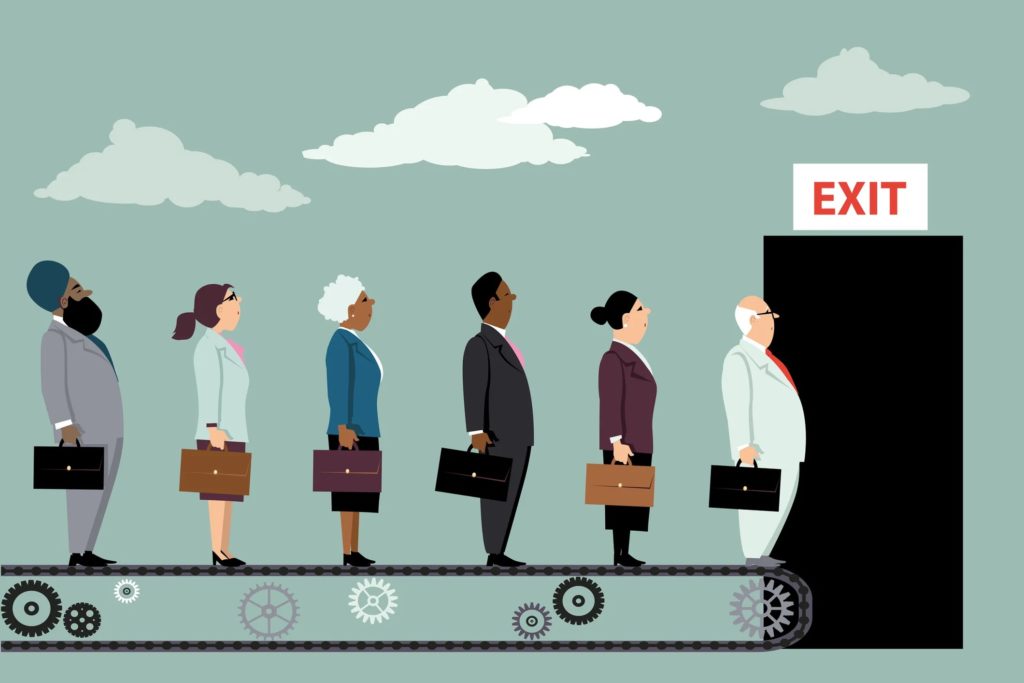
The pandemic forced everyone to have to rethink how to do their same jobs from home instead of inside a collective office building. It also prompted people to reconsider their goals, desires, and those things that are most important to them.
It all worked out well. Almost too well.
Now, 2 years after COVID first yanked the rug out from under us all and abruptly presented us with a new normal, nobody wants to go back to the office. Some have even surrendered to the Great Resignation.
One sure thing the pandemic taught us is that the concept of waking up at 5am, getting dressed in business attire, finding child care, commuting or driving to work 45 minutes each way, just to sit inside an office cubicle for 8 or more hours 5 days a week is an old and outdated concept. It became old and outdated the day we realized we could do the exact same job in our pajamas while sitting at home without the early alarm, suit and tie, babysitter, commute, and $12 lunches.

With the pandemic a bit more under control now and no longer killing thousands of humans per day, corporations are eager to go back to the old and get employees back to the collaborative office space.
The only problem is that nobody wants to go back.
For employers, they have all these shiny new office buildings that they either lease or own that are filled with millions of dollars of equipment and are simply sitting idle and empty. Take for instance tech giant Apple, which built a massive, state-of-the-art $5 billion office structure in Silicone Valley that employees only used for a few months before the pandemic sent them all home. For these CEOs, they want their employees back in the office ASAP because they don’t want their real estate investment wasted.
For employees, they believe if they’re doing just as good and productive of a job at home, why should they be forced to gather inside a single work environment — particularly when software such as TEAM and ZOOM allows them the same opportunity to get the same job done? For these workers, commuting to an office only to proofread and correct a document is nonsensical when they’ve already proven they can just as easily complete the task at home.
“If I go into the office and there are people but none of them are on my team, I don’t gain anything besides a commute,” said Mathew, who works for a large payroll company in New Jersey. “Instead of sitting at my own desk, I’m sitting at a desk in Roseland.”
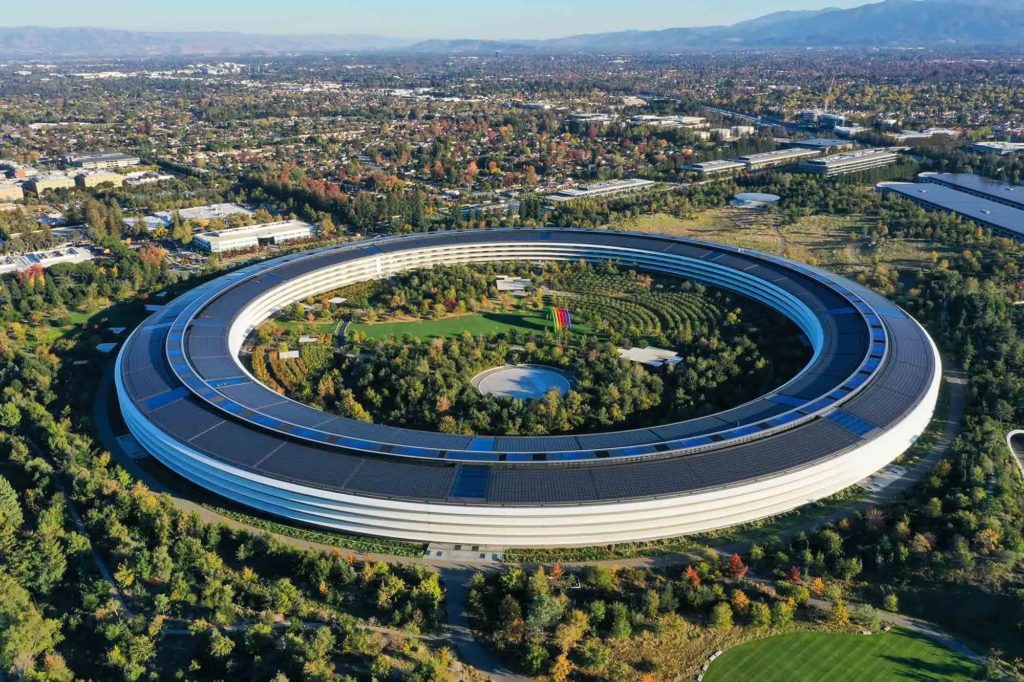
In the case of Apple, CEO Tim Cook came up with a hybrid work schedule compromise where employees would come into the office on Monday, Tuesday, and Thursday and work “flexibly” on Wednesday and Friday. Interestingly, many employees said NO DEAL and even threatened to quit and join the Great Resignation rather than go back to the old office concept.
“As employers require workers to return to offices, quits are ticking upwards. A major reason for quitting is to find a remote opportunity,” wrote ZipRecruiter chief economist Julia Pollak on Twitter.
Yes, despite soaring consumer prices and a predicted recession, employees are either insisting on work-from-home opportunities or quitting their jobs by the droves and joining the Great Resignation.
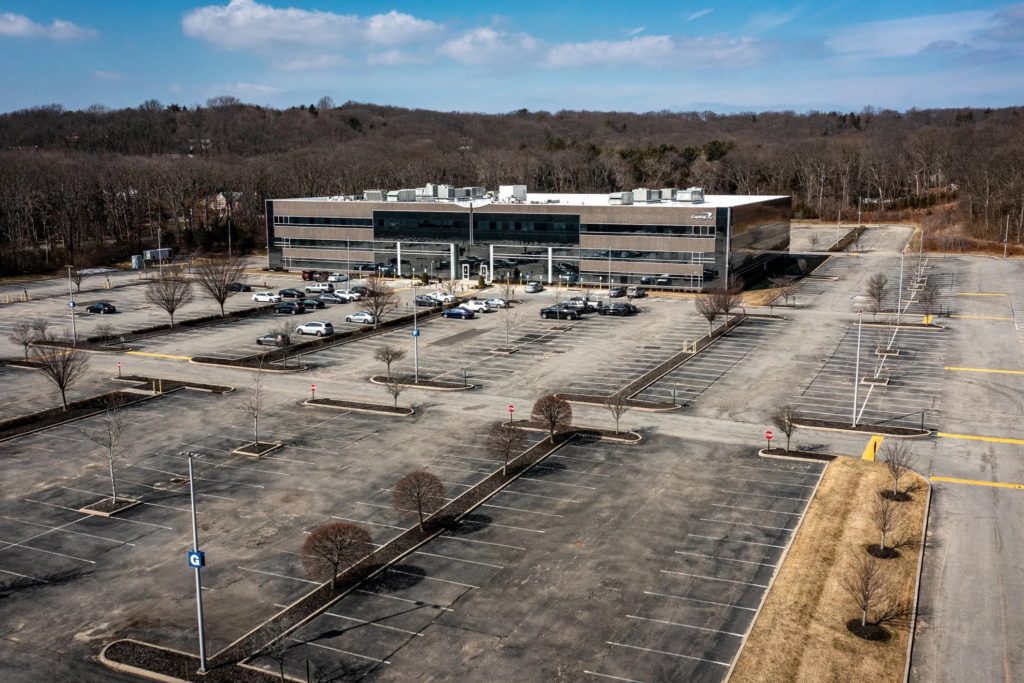
Being able to work from home for more than a year, skipping the rat race of commuting, spending quality time with their children and loved ones, and leaving behind the stress of pressure-cooker days and long work hours only to pay for possessions they rarely get to actually enjoy was a wake-up call for many.
The pandemic forced us all to sit, be idle, rethink our priorities, and enjoy the simpler things in life. Working from inside an office suddenly became less of a priority. Unimportant. Unnecessary.
“At the midpoint of life, we become aware of our own mortality, and it allows us to reflect on what really matters to us,” said Columbia Business School professor Adam Galinsky. “A global pandemic obviously makes people reflect on their own mortality in terms of being afraid of dying themselves or having a loved one or family and colleagues pass away.”
With office buildings and connected parking lots looking like ghost towns across the country, corporations are eager to get workers back inside the structures they built for productivity. Except, that business model now seems as ancient and outdated as a VCR and nobody wants to go back — no matter how many free tacos or t-shirts they’re offered.
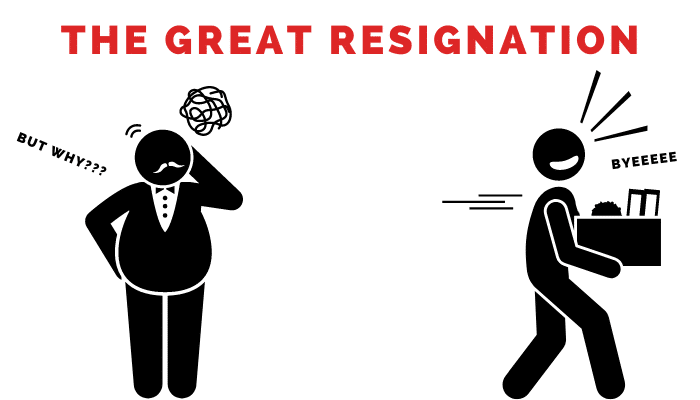
COVID opened Pandora’s box and proved that remote work is just as productive (if not more so) than in-person work. It also proved that stress-filled work days are not required for business success and that living where and how we want via the Great Resignation is of greater value to our inner happiness.
Too bad for employers, but it’s going to be next to impossible to put the genie back in the bottle again!
OK WASSUP! covers Current Events:
The work-from-home and Great Resignation ultimatum.

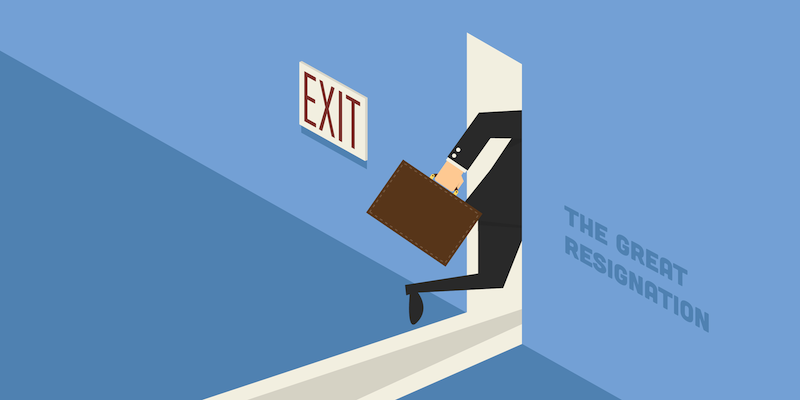





Yes indeed, I am certainly among the employees who got used to working mostly from home so I do understand.
However, in my new position, the hybrid work schedule works best for me (3 days in the office and 2 days flex). Thankfully, my staff is fine with the hybrid work schedule as well (3 days in the office, 2 days flex).
It’s come down to this – IF employers want to attract and keep good workers there’s going to have be some bending (if you will). I applaud Apple CEO Tim Cook for being willing to do just that. But he’s a rarity. Most CEOs are still living in the past. It’s going to take them awhile to truly understand they don’t have as much power/leverage over their workforce as they used to Pre-Covid.
The problem is a lot of employers are stuck in a old way of thinking and do not want to change. Also like DJ said they built all these new offices and want to get their moneys worth out of using them. But if the refuse to change they are going to lose a lot of good talent.
Yep. That’s pretty much what I said BD. If employers want to attract and keep good workers they’re going to have to bend OR as you said, they will “lose a lot of good talent.”